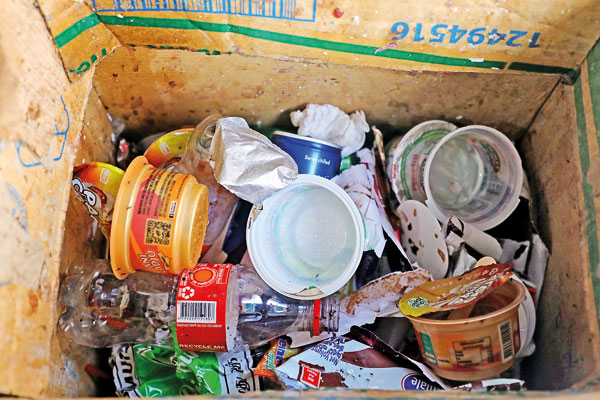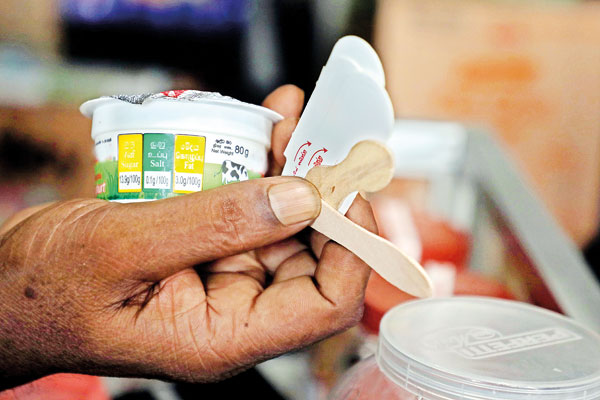Impotent policies, lack of disposal facilities, worsen plastic menace
View(s):By Minaza Hassan
This study suggested that this was attributed to poor waste disposal facilities and practices, a lack of sanitary landfills and inadequate waste collection among other factors like tourism and high population density which seemed to have significantly increased plastic waste along with inadequate systems to manage the waste.
As a policy, garbage is separated into perishable waste, recyclable waste and residual waste, This is generally practiced at a household level, and ultimately it is not disposed of in this manner after a certain limit, said Western Province Waste Management Authority (WMA) Director Nalin Mannapperuma.

Sri Lanka has the highest rate of plastic waste leakage in South Asia
Sometimes, waste is collected irrespective of its type and dumped together.
“There is no adequate disposal capacity for proper processing (not enough compost plants/incineration facility), and therefore the local authority has to take a certain percentage of the waste into dumping due to the lack of final disposal facility,’’ Mr. Mannapperuma said.
Environmentalist and lawyer, Jagath Gunawardana, said: “Tourism or a high population density should not necessarily mean that there should be a plastic problem, the real issue is plastic waste management (PWM). This is a matter of collection and disposal of waste.’’
There should be proper laws and all bodies responsible for waste should do a proper job, he said.
The types of plastic need to be segregated and taxes must be imposed according to their uses. But, Sri Lanka does not have effective management strategies for plastic waste disposal, Dr. Gunawardana said.

The yoghurt cup has more plastic than the spoon, however, only the spoon was replaced. Pix by Priyanka Samaraweera
From import to disposal, authorities need to address plastic holistically, said Dr. Gunawardana.
Certain measures taken by state authorities have been unhelpful and ineffective, noted Dr. Gunawardana. Plastic shopping bags were banned and but it led to shoppers being charged a fee — the argument being that it would be a deterrent.
This is hardly the case and it is not practical as most consumers who go to supermarkets after work cannot be bothered to bring their own bags. They are likely to pay for a plastic bag, said Dr. Gunawardana.

Waste is collected irrespective of its type and dumped together
If shopping bags cannot be banned, then the taxes on the raw materials should be increased to encourage supermarkets to come up with an alternative. Penalising the consumer and adding to the cost of living is ineffective and unhelpful, said Dr. Gunawardana.
An example is the replacement of plastic spoons in yoghurt cups. The cup has more plastic than the spoon, however, only the spoon is replaced.
Yoghurt was once in oil paper cups and a wooden spoon, which was more functional and environmentally friendly, he said. Measures by the ministry seem to be about helping large-scale producers rather than finding effective environmentally-friendly solutions.
HitAd.lk is the best and biggest mobile phone market in Sri Lanka, and we guarantee you will find what you need here from our extensive listing of mobile phones for sale in Sri Lanka. Whether it’s a budget-priced smartphone for communication, or higher end features with advanced connectivity, there are many different options from which to choose from on our site!


